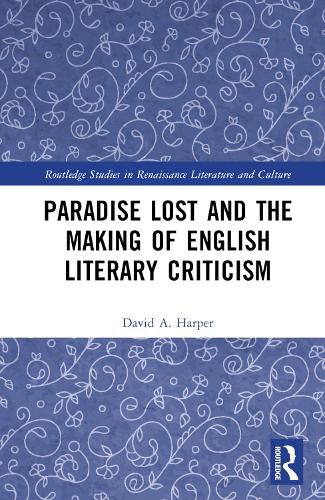Readings Newsletter
Become a Readings Member to make your shopping experience even easier.
Sign in or sign up for free!
You’re not far away from qualifying for FREE standard shipping within Australia
You’ve qualified for FREE standard shipping within Australia
The cart is loading…






Paradise Lost and the Making of English Literary Criticism identifies the early reception of Paradise Lost as a site of contest over the place of literature in political and religious controversy. Milton's earliest readers and critics (Dryden, Addison, Dennis, Hume, and Bentley) confronted a poem and author at odds with the prevailing culture and the revanchist conservatism of the restored monarchy. Grappling with the epic required navigating Milton's reputation as a "fanatick" who had called in print for Charles I's execution, inveighed openly against monarchy on the eve of Charles II's return, and held heretical views on the trinity, baptism, and divorce. Harper argues that foundational figures in English literary criticism rose to this challenge by innovating new ways of reading: producing creative (and subversive) rewritings of Paradise Lost, articulating new theories of the sublime, explaining the poem in the first substantial body of annotations for an English vernacular text, and by pioneering early forms of textual criticism and editing.
$9.00 standard shipping within Australia
FREE standard shipping within Australia for orders over $100.00
Express & International shipping calculated at checkout
Paradise Lost and the Making of English Literary Criticism identifies the early reception of Paradise Lost as a site of contest over the place of literature in political and religious controversy. Milton's earliest readers and critics (Dryden, Addison, Dennis, Hume, and Bentley) confronted a poem and author at odds with the prevailing culture and the revanchist conservatism of the restored monarchy. Grappling with the epic required navigating Milton's reputation as a "fanatick" who had called in print for Charles I's execution, inveighed openly against monarchy on the eve of Charles II's return, and held heretical views on the trinity, baptism, and divorce. Harper argues that foundational figures in English literary criticism rose to this challenge by innovating new ways of reading: producing creative (and subversive) rewritings of Paradise Lost, articulating new theories of the sublime, explaining the poem in the first substantial body of annotations for an English vernacular text, and by pioneering early forms of textual criticism and editing.